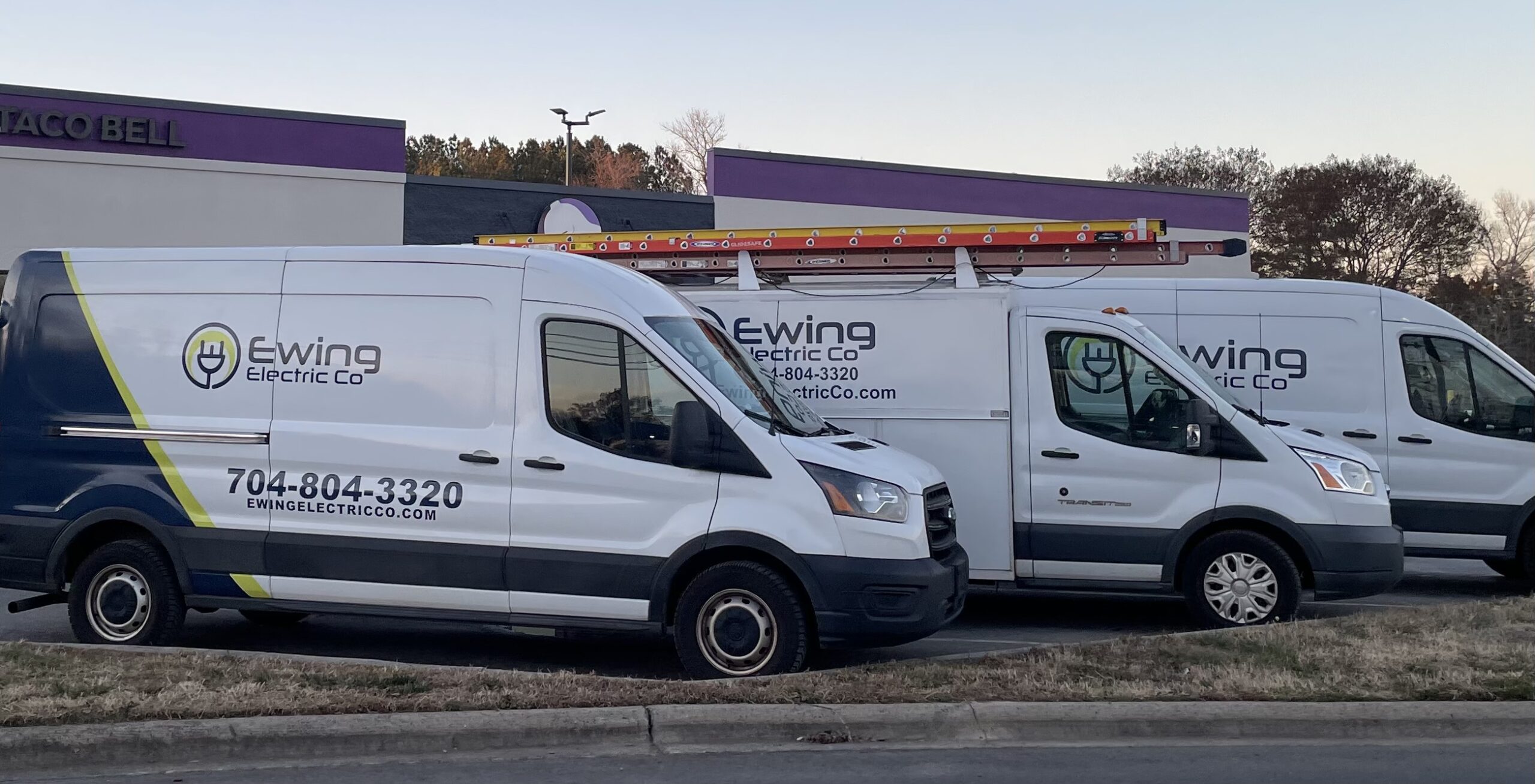Is It Time for an Electrical Panel Upgrade? Advice from Your Local Charlotte Electricians

Introduction
In today’s world, where our homes are laden with electronic devices, smart appliances, and increasing energy demands, the importance of a functioning electrical system can't be overstated. One critical component of this system is your electrical panel. If you've ever wondered, "Is it time for an electrical panel upgrade?", you’re not alone. Many homeowners find themselves in similar situations, often seeking guidance from trusted professionals like Ewing Electric Co in Charlotte, NC. In this article, we’ll explore the signs that indicate it's time for an upgrade, delve into common concerns surrounding electrical panels, and provide insight from local electricians in Charlotte.
Is It Time for an Electrical Panel Upgrade?
When evaluating whether your home requires an electrical panel upgrade, you might ask yourself several questions.
What is an Electrical Panel?
An electrical panel—often referred to as a breaker box—is the hub of your home’s electrical system, distributing electricity from the main line to various circuits throughout your house. It contains circuit breakers or fuses that protect your home’s wiring and prevent overloads.
Signs You Need to Upgrade Your Electrical Panel
- If you notice that circuit breakers trip frequently or fuses blow often, this could indicate that your panel is overloaded.
- Dimming lights when appliances turn on can signal insufficient power being supplied by your current panel.
- If your panel is more than 20 years old, it might not handle modern energy demands effectively.
- Any burning smell or discoloration around the panel should prompt immediate inspection by a qualified electrician.
- Adding new high-energy appliances like HVAC systems or smart home devices may require an upgraded system to accommodate increased load.
- If your home has aluminum wiring instead of copper, it's crucial to consider upgrading to ensure safety and compliance with current standards.
Why Choose Ewing Electric Co in Charlotte NC?
Choosing a reputable electrician is essential when contemplating an upgrade. Ewing Electric Co in Charlotte specializes in residential electrical work and offers free consultations to assess your needs effectively.
Understanding Electrical Panels: Types and Capacities
Types of Electrical Panels
There are several types of electrical panels found in homes:
- Main Breaker Panel: This serves as the primary distribution center for electricity.
- Sub-Panels: Installed to manage various areas of larger homes where additional circuits are needed.
- Smart Panels: These modern panels allow homeowners to monitor their energy usage digitally.
Capacities Explained
Electrical panels typically come in various capacities:
- 100 Amp Panels: Common for older homes; may struggle with modern demands.
- 200 Amp Panels: Ideal for most average-sized homes with multiple high-demand appliances.
- 400 Amp Panels: Suitable for large homes with extensive electric needs or additional structures.
The Importance of Professional Installation
Why Hire Local Electricians?
Working with local electricians in Charlotte ensures that you receive personalized service tailored to regional codes and practices. A residential electrician in Charlotte will understand common issues faced by homeowners and have experience with local building codes.
What Does the Installation Process Look Like?
Cost Considerations for Upgrading Your Electrical Panel
Breakdown of Costs Involved
Upgrading an electrical panel can vary significantly based on several factors:
- Cost of new equipment (panel type).
- Labor costs associated with installation.
- Possible modifications required in wiring or circuits.
Generally speaking:
| Type | Average Cost Range | |----------------|--------------------| | 100 Amp | $800 - $1,500 | | 200 Amp | $1,500 - $3,000 | | 400 Amp | $3,000+ |
Financing Options Available
If upfront costs are a concern:
- Ask about financing options available through local contractors like Ewing Electric Co.
- Check if any rebates are offered by local utility companies for energy-efficient upgrades.
Safety Concerns Surrounding Electrical Panels
Common Hazards Related to Old Panels
Older panels can pose various safety risks including:
- Overheating leading to fire hazards
- Non-compliance with current safety codes
- Insufficient protection against surges
How Upgrading Enhances Safety Standards
By upgrading your electrical panel:
Myths vs Facts About Electrical Panel Upgrades
Myth 1: All panels need upgrading periodically
Fact: Only those showing signs of wear or struggling with load require upgrades.
Myth 2: DIY upgrades are safe
Fact: Always consult licensed electricians; improper handling can result in severe hazards.
FAQs About Electrical Panel Upgrades
FAQ 1: How do I know my panel needs an upgrade?
Look for frequent tripping breakers, flickering lights, age over 20 years, burning smells, significant renovations/additions.
FAQ 2: Can I install a new electrical panel myself?
It’s highly discouraged; always hire licensed electricians who understand local codes.
FAQ 3: What happens during an upgrade?
Electricians will disconnect power temporarily while replacing the old panel and testing circuits afterward.
FAQ 4: Are there financing options available for upgrades?
Yes! Many contractors offer financing plans; check locally.
FAQ 5: How long does it take to upgrade an electrical panel?
Typically between four to eight hours depending on complexity.
FAQ 6: Will upgrading my electrical panel increase my home's value?
Absolutely! An upgraded system is attractive to potential buyers concerned about safety and efficiency.
Conclusion
In conclusion—if you've been pondering "Is it time for an electrical panel upgrade?", now is certainly the moment to act on those thoughts if any signs resonate with you! Trustworthy professionals like Ewing Electric Co ensure seamless transitions during upgrades while enhancing both safety and functionality within your home’s electrical system.
With today’s demand for electricity only increasing as technology advances further into our lives—it’s never too late nor too early to invest wisely into ensuring both comfort and security within one’s living environment! Don't hesitate—contact experienced electricians Charlotte NC residents trust today!
This extensive article has covered various aspects related to assessing whether you need an electrical panel upgrade while providing advice from experienced electricians in Charlotte NC such as Ewing Electric Co., ensuring readers have all necessary information at their fingertips!
